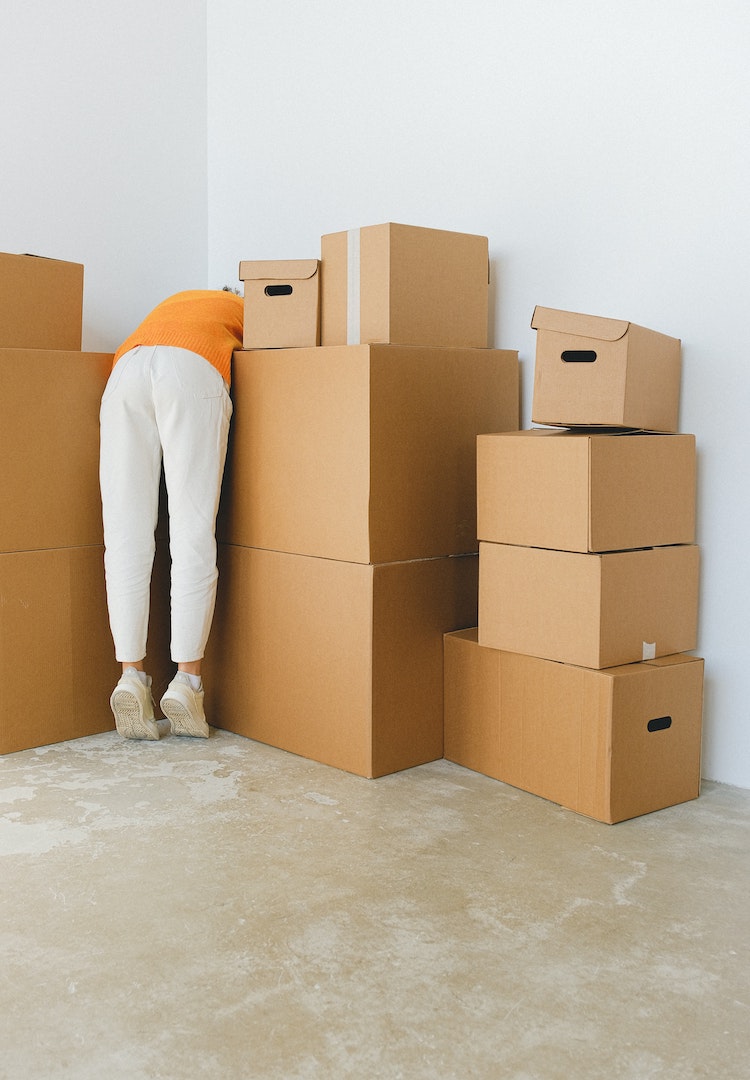How are young people coping with the Australian rental crisis?
WORDS BY Nina Miyashita
“More and more we’re seeing that people are probably going to be renting for the rest of their lives and it’s particularly more likely for the younger generations.”
It’s been a long-standing rite of passage that young Australians pay their dues when it comes to housing. We endure leaky taps and grimy floors, uncommunicative landlords and share bathrooms with five other people.
After living in these less-than-ideal circumstances for a certain period of time, there’s the expectation that – after squirrelling away enough money – we’ll be able to gingerly climb onto the property ladder. But it’s looking like that’s no longer the case.
Interested to hear how others navigate the world? Head to our Life section.
A 2019 survey of over 10,000 Australians who lived in shared houses showed that 50 per cent of people lived this way because they couldn’t afford any other alternative. About 20 per cent lived this way because, while maybe not necessary, it seriously eased their financial load.
And with inflation rising like hot air and the cost of living soaring in the years since 2019, the demand for rental properties has skyrocketed too.
Two years ago I made the choice to live alone. I rented a cute one-bedroom apartment in a lovely inner-city suburb and attempted to get used to a solo household.
But it wasn’t long until the bills piled up, supermarket prices started to climb and work became unsteady due to the pandemic. Rent day caused an unnatural amount of panic, and eventually, I conceded defeat and moved back into a shared living arrangement.
Even now, with my financial burdens partially eased by housemates again, I still face rent day with great apprehension. The days that follow, towards the end of my pay cycle, make me nervous too. And my tale of woe isn’t rare.
Erin*, 24, is struggling not just to find somewhere affordable, but to find a place at all. She’s been moving back and forth between sublets and her parents’ house, waiting for a rental property that meets all her basic needs to pop up.
“The market for sharehouses is just so saturated,” she tells me. “The supply for a room you can afford, let alone a nice one in or around the city, just can’t meet the demand.”
Moving back in with her parents after having lived out of home hasn’t been the easiest for Erin emotionally. Now that she’s had a taste of independence, she’s feeling uneasy about having taken what feels like a step back.
“I love my family, but you can definitely reach a point when you’re ready to move on,” she tells me. “It’s been hard feeling like I can’t live my life the way I want and need, walking around my city and feeling like I don’t belong here now because I can’t afford it.”
I’m hearing stories like Erin’s more and more lately, so I spoke to Maiy Azize, the national spokesperson for the Everybody’s Home campaign, to try and understand the situation better.
Maiy confirms my suspicions that young people are some of the hardest hit by the rental crisis. Young people are often on the lowest incomes and government payment schemes available, so it’s no surprise that we’re some of the worst placed to deal with it.
While Everybody’s Home is seeing the crisis across the board, there are different issues in different parts of the country. “In the cities, what we’re finding is that people are struggling just because rents are simply so high,” Maiy tells me.
“People are drawn to cities like Sydney and Melbourne because that’s where jobs are and where young people are most likely going to be starting their careers, yet they face such high rent that this becomes almost redundant.”
Helen*, 26, has lived in three different places this year alone. And with each relocation, she moves further and further from her city, her work and her life. “Each time I move further away from the city, there’s always more than one cost,” Helen tells me.
“Not only does the money I save on rent end up pouring back into transport and longer commutes to work, but I feel like I’m giving up a lot socially too. I live so far away from all of my friends now that I barely see them anymore.”
But it isn’t just city folks that are hurting. “We’re also finding that people who’ve grown up in regional or country areas are being priced out of their own communities because a lot of people relocated to more remote areas during the pandemic,” Maiy tells me.
So what can we do about it? According to Everybody’s Home, we need a lot of government funding for social and affordable housing, and reforms in the private housing market that will finally start to prioritise people who live in housing over people who invest in housing.
If this can happen, we’ll see a freeing up of capacity at the most inexpensive end of the rental market, which is where young people and those most in need of affordable housing sit.
Second but not unequal to that is a change in the way we approach renting. The cultural sentiment around renting in Australia is that it’s a temporary living situation but this seems like it’s no longer the case.
“More and more we’re seeing that people are probably going to be renting for the rest of their lives and it’s particularly more likely for the younger generations. We need reforms to stop rents from going up at unreasonable rates, and reforms that allow people to have some security to make a home where they live,” Maiy says.
Holly*, 23, and Nick*, 25, have been living together for a number of years, and have been on a real rollercoaster throughout their housing journey. “When we first moved in together, it was more so out of financial practicality,” they tell me. “Paying two lots of rent when we stayed together every night seemed silly.”
While they still have wistful dreams that they will one day own property, they’re now much more inclined to believe that in reality, renting is their future.
“It’s strange that… a few decades ago, owning property in Australia was everybody’s dream and they were actually making it happen too,” Holly says. “Now, as nice as it seems, it just seems so out of reach for our generation.”
When I ask the couple if the idea of renting forever upsets them, they say not anymore. It’s something they’ve adjusted to, and despite the fear of the insecurity it brings, they try to enjoy the element of possibility and change it can provide too.
And at the end of the day, if you need help, don’t be ashamed to ask for it. “If you need to get some emergency relief to pay your rent, or if you’ve been wiped out on paying rent and you have no money left to pay bills, go and see a charitable organisation for help,” Maiy implores. “Don’t skip a meal over it.”
For more on the housing crisis and how we can reverse it, head here.










